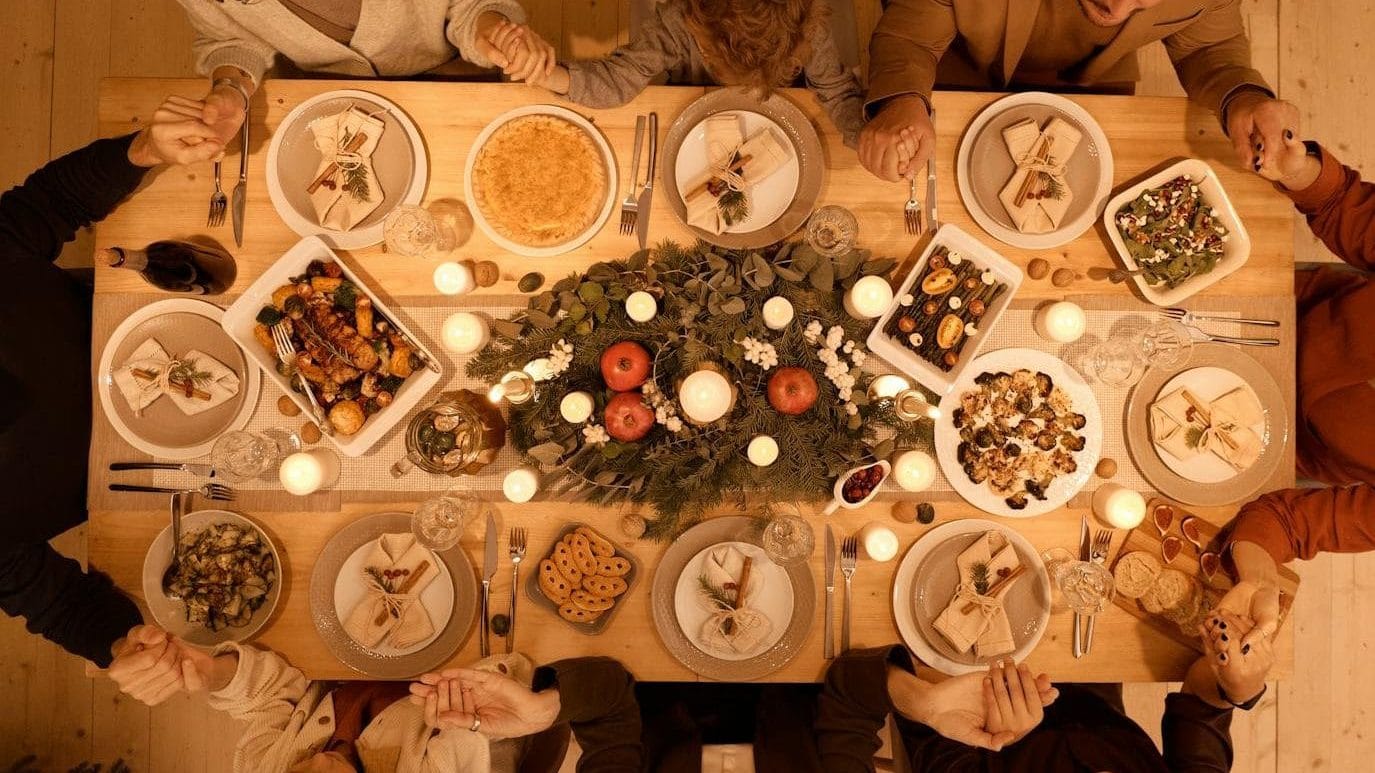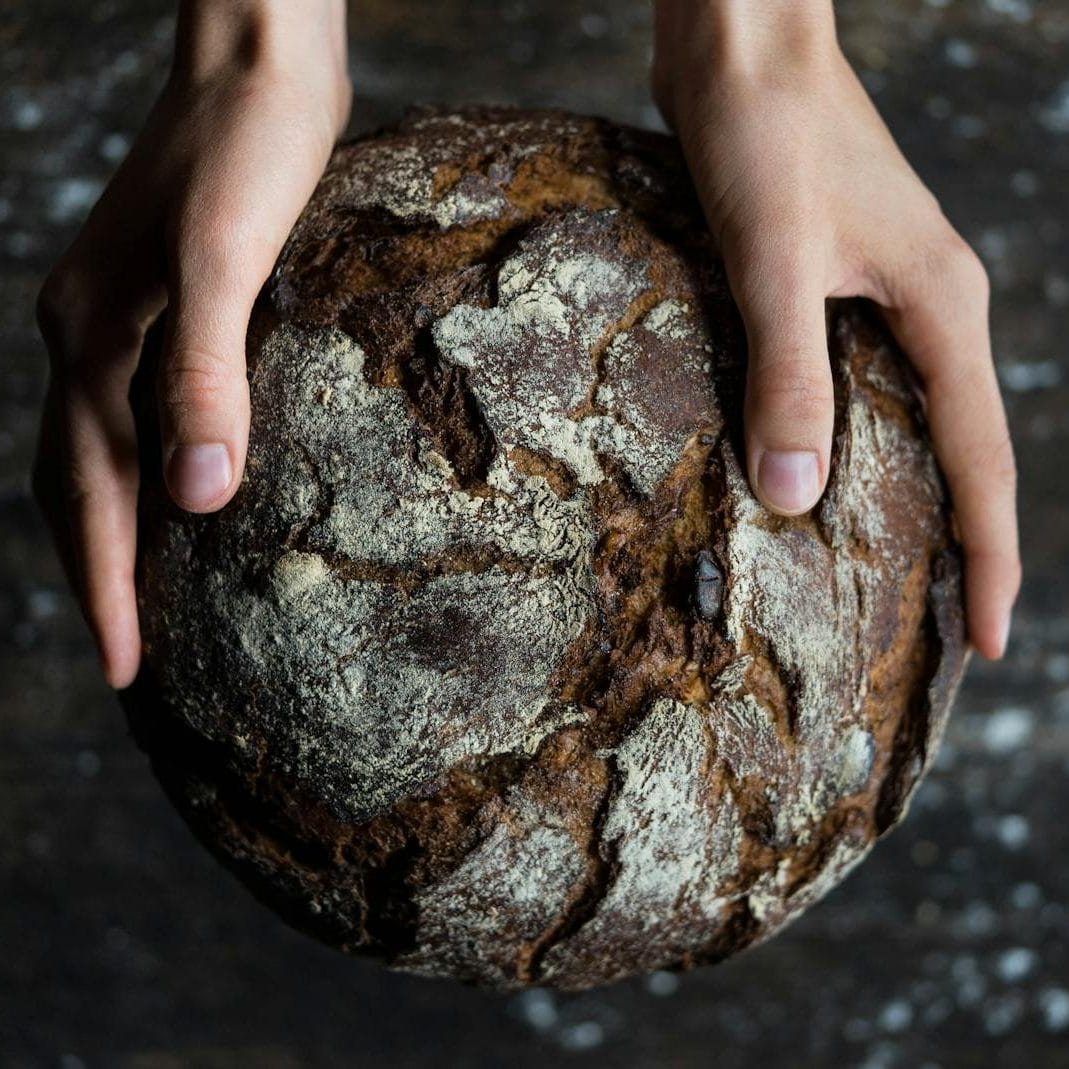I love a good, generous party. I especially love throwing a good party. Perfecting the table settings, curating a playlist, preparing the food, and pairing the drinks are all parts of hospitality, but they are also the performance-driven pieces that are meant to impress and entertain. True hospitality — biblical hospitality — is not about impressing and entertaining. This kind of hospitality provides a table where friends can deepen relationships and strangers, even enemies, can become friends. It makes the table a place where we can be known and loved, even in our most vulnerable and most broken moments. I often find this kind of table — being known, accepted, and loved — no matter what I’m feasting on, is that for which I truly hunger. Don’t you?

There is an oft-forgotten story in the life of David where this kind of table is set. Rarely does it show up in Bible studies or sermon series. There are so many other stories to choose from in the life of David: his triumph over Goliath, his conquest of Bathsheba, his psalter, his naked dancing before the ark. The story I’m referring to, stuck in the middle of all those others — which seem more salacious and instructional — could have been just left out altogether. But it wasn’t. And maybe that’s because it’s more scandalous than all the other parts of David’s life.
The story I’m referring to is that of David and Mephibosheth (2 Sam 9).
David is at the height of his kingdom. It is generally stable, and the constant threat of the Philistines has almost been eliminated. Despite this, he looks around and asks, “Is there anyone left of the house of Saul?” This would have been a bloodletting question to secure his own power and kingship in Jerusalem — the moment to ensure any descendants of the former king do not rise against him.
However, this is not the entire question. He continues, “…so that I can show kindness to him for Jonathan’s sake?” Jonathan was Saul’s son, killed in battle alongside his father the king. But he had also been David’s best friend. As Jonathan warned David of his father’s murderous desire toward David, Jonathan and David made a covenant with each other, ensuring kindness toward their offspring (1 Sam 20). At the height of his power, David was not seeking revenge; instead, he pursued the covenant he had made with Jonathan. This kindness (hesed in Hebrew) is covenantal love and faithfulness that goes beyond mere niceties. This is David asking if there is an enemy left to love.
To David’s surprise, Jonathan’s son, Mephibosheth, was still alive and had been living in obscurity beyond the Jordan River in Lo-debar. Mephibosheth was hardly a threat to David’s reign — his feet had been permanently injured when he was five years old after his caretaker dropped him during their escape from the palace (under siege by the Philistines). And yet, he knows the gravity of the king’s summons. When he arrives, he prostrates himself to pay homage. He declares his service to the king and his status as a dead dog.
But the way David responds surely surprises all in his presence. Instead of the expected “off with his head,” David restores Saul’s land to Mephibosheth and his servants. What he says next is the most surprising: “and you will eat at my table always.” David doesn’t just say this once; he declares it twice, and the passage reiterates it another two times. This double repetition reminds us that these are not empty words, but the way in which David shows his kindness to Mephibosheth and honors his covenant with Jonathan.
On this story, Eugene Peterson writes,
“One of the ways in which the Christian Community can contribute to the atrophied understandings and declining capacities for love in our society is to install the David and Mephibosheth story in the canon of the world’s greatest love stories.”
We can help install this story through a more hospitable, more loving, more generous table. A more generous table is where the story takes place, both in the Scriptures and in the life of the Church. It is not in the lavish entertainment prescribed by the world that this generosity shows up. A more generous table requires more intentionality, more vulnerability, more sacrifice, and more grace.
More Intentionality
David’s table begins with intentionality. He remembers his covenant with Jonathan and, despite all that has transpired, he’s intentional in honoring it. He asks the question, “Is there anyone?” And seeks out an answer.

A more generous table doesn’t just happen on its own; it takes more intentionality. We have to ask the question, “Is there anyone we can invite to our table?” In the busyness of our daily lives, we often forget to sit down at the table for ourselves, let alone make room, make food, and invite others to it. We eat in our cars and cubicles when, with just a little planning, we could be eating with companions. Who do we need to intentionally seek out to create a more generous table?
More Vulnerability
A more generous table requires more vulnerability. It can be scary inviting someone to your table — especially if he’s the grandson of the previous regime who tried to kill you! In reality, there’s vulnerability on both sides of the table — host and guest alike. David knows that he is inviting an heir to the former throne who might kill him. He invites him anyway. Mephibosheth believes that David might kill him when he shows up. He shows up anyway.
The word “vulnerable” means being exposed to potential attacks and, in some cases, even assumes harm will occur. Some of us have experienced this and do not want to risk being exposed once again. Providing a more generous table almost always ensures some degree of hurt — to be more generous, we risk vulnerability and being wounded. But we risk anyway, because oftentimes the only way healing can take place is to reopen a wound and allow the balm of shared tables begin the healing we so desperately long for.
More Sacrifice
A more generous table requires more sacrifice. Oh, how I hate to make sacrifices, but God has baked sacrifice into the design of the world. Tables necessitate sacrifice — especially generous ones. Sacrifices of time, money, perfection, privacy, and even lives are made when we sit down at the table. Food has to be purchased and prepared; homes have to be open and exposed — the lives we so carefully curate are examined and even judged. To get food on the table predicates that a life has been taken.
But sacrifice is also how life is transferred to one another. David restores Saul’s land to Mephibosheth along with all its crops, fruit, and livestock. He had all he needed to survive, but David sacrifices even more. He gives up a seat at his table for Mephibosheth. His seemingly perfect life will be on display before Mephibosheth. David sacrifices his time and possessions so that Mephibosheth can eat at the king’s table always.
This is ultimately what we call hospitality. Popular hospitality floats on the waves of entertainment, never getting below the surface. However, biblical hospitality is characterized by the familial love of the stranger (philoxenia in Greek). It has purpose and direction. It moves toward the stranger (or enemy) so that they might become family. It’s intentional, vulnerable, and sacrificial — which is why it requires more grace.
More Grace
We are going to fail in our hospitality. And all those we invite to our table will also fail us. Therefore, a more generous table requires more grace. Remember the grace extended to us at Christ’s table incarnates the intentionality, vulnerability, and sacrifice needed to provide this generous grace. Jesus ate with religious elites, prostitutes, and tax collectors alike. And when he instructed his disciples to remember him, he did so at a more generous table. Not only did Peter, John, and nine others sit down at his table, but so did Judas. So do we, every time we celebrate the Lord’s Supper.

Mephibosheth did not earn his seat at the king’s table. It was a gift of grace. Nor can we earn our seat at the Lord’s Table through our good works. Nor is it a seat that we can lose because of our sinfulness. This is a seat we are invited to have through Christ’s gift of grace — that is his intentional, vulnerable, sacrificial love toward us. And it is this grace that we are invited to generously share with others, whether it be at the Lord’s table, or our family table.
C. T. McMahan writes,
“Of all the means by which Jesus could have chosen to be remembered, he chose to be remembered by a meal. What he considered memorable and characteristic of his ministry was his table-fellowship. The meal, one of humankind’s most basic and common practices, was transformed by Jesus into an occasion of divine encounter. It was in the sharing of food and drink that he invited his companions to share in the grace of God. The quintessence of Jesus’ redemptive mission was revealed in his eating with sinners, repentant and unrepentant alike.”
A more generous table isn’t something that we merely offer to others. A more generous table is that which is provided to us in Christ.
About the author: Rev. Dr. Mark R. Grapengater
As a pastor who ministers to the city of Denver through The Table Project, Mark’s vocation is to pay attention to God and relate to people like Jesus did — eating and drinking, extending hospitality, acknowledging the imago dei within them, and inviting them to see what God is doing in their lives.


